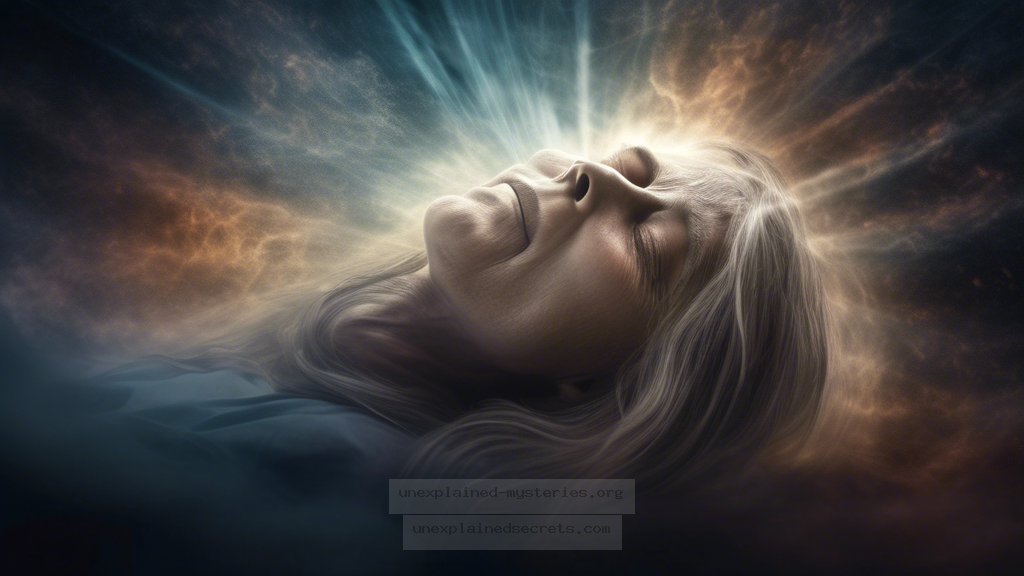Do Near-Death Experiences Provide Evidence of Consciousness Beyond Death?
Do Near-Death Experiences Provide Evidence of Consciousness Beyond Death?
The concept of consciousness surviving after clinical death has captivated humanity for centuries. Near-Death Experiences (NDEs) offer a unique window into this profound mystery, leading to deep philosophical, spiritual, and scientific inquiries. This post delves into the compelling evidence and theories surrounding NDEs, exploring whether they suggest that consciousness may persist beyond our physical existence.
Understanding Near-Death Experiences
Near-Death Experiences are phenomena reported by individuals who have come close to death or have been clinically dead for a brief period before being revived. These experiences often include sensations like moving through a tunnel, encountering bright lights, feelings of peace, or meeting deceased loved ones. While the experiences vary widely, there are several commonalities that have emerged in documented cases.
- Intense feelings of peace and joy
- Out-of-body experiences (OBEs)
- Encounters with deceased individuals
- Life review or seeing significant events from one’s life
- Perception of an overwhelming light
The Historical Context of NDEs
Historically, reports of NDEs can be traced back to ancient texts. In the Tibetan Book of the Dead, for example, there are descriptions of the soul’s journey after death. However, it wasn’t until modern times—particularly the late 20th century—that NDEs began to receive significant attention from scientists and researchers. Pioneering studies by Dr. Raymond Moody in the 1970s brought NDEs into mainstream awareness, introducing the term “near-death experience” and categorizing the various elements commonly reported.
Core Concepts and Theories Surrounding NDEs
Various theories have been proposed to explain NDEs, from physiological to spiritual perspectives:
- Physiological Theories: Some researchers argue that NDEs result from brain activity during clinical death, including oxygen deprivation or neurotransmitter release.
- Psychological Theories: Psychological responses to trauma or the brain’s coping mechanisms may explain NDEs as a form of protective mental escape.
- Spiritual Interpretations: Many view NDEs as evidence of an afterlife or a realm of existence beyond physical death.
Analyzing the Evidence: Real-World Accounts
Numerous documented cases present compelling narratives that challenge conventional scientific explanations:
- Dr. Eben Alexander: A neurosurgeon, Dr. Alexander experienced a profound NDE while in a coma due to a rare illness. He reported a vivid journey through a beautiful landscape, leading him to conclude that consciousness exists independently of the brain.
- Pam Reynolds: During a surgical procedure for a brain aneurysm, Pam reported an OBE and described events she could not have known about, such as conversations between doctors and nurses, which were later verified.
Scientific Research and Findings
Research on NDEs has expanded significantly in recent years. Studies have documented the consistency of experiences across cultures, suggesting a universal phenomenon. Some key findings include:
| Study | Key Findings |
|---|---|
| Dr. Pim van Lommel (2001) | Found that 18% of cardiac arrest patients had NDEs, with many reporting enhanced well-being and decreased fear of death post-experience. |
| Dr. Sam Parnia (2014) | Led a study revealing that consciousness can be present even when the heart is not beating, suggesting a disconnect between brain activity and consciousness. |
Practical Implications of NDE Research
The implications of NDE research extend beyond the individual. They influence our understanding of consciousness, spirituality, and even medical ethics. For instance:
- Healthcare professionals may consider how NDEs affect patients’ attitudes toward life and death.
- Understanding these experiences can lead to more compassionate end-of-life care.
- NDEs may inform discussions about the nature of consciousness in medical and philosophical fields.
While NDEs can profoundly impact individuals, they should be approached with an open mind and a critical eye. Not every experience indicates a definitive afterlife or spiritual truth.
Alternative Perspectives on NDEs
Despite the growing body of evidence supporting NDEs, skepticism remains. Critics argue that:
- Many NDEs can be attributed to psychological or neurological phenomena rather than evidence of consciousness after death.
- Personal beliefs and cultural backgrounds heavily influence how individuals interpret their experiences.
This skepticism is essential for a balanced discourse on the subject, as it encourages further investigation and understanding of the human brain and consciousness.
Common Misconceptions about NDEs
Several misconceptions about NDEs persist in popular culture:
- NDEs are always positive: While many report positive experiences, some describe distressing or negative encounters.
- All NDEs are the same: Variability exists in NDEs based on personal beliefs, cultural background, and individual circumstances.
NDEs are complex phenomena. Understanding them requires sensitivity to personal narratives and cultural contexts.
Best Practices for Investigating NDEs
For those interested in exploring NDEs, several best practices can enhance understanding:
- Engage with credible research and literature on NDEs from both scientific and spiritual perspectives.
- Participate in or attend NDE conferences or workshops to hear firsthand accounts and expert analyses.
- Consider developing a personal framework that honors both scientific inquiry and spiritual exploration.
Future Developments and Ongoing Research
As research continues to evolve, several areas hold potential for future exploration:
- Advancements in neuroscience may provide deeper insights into consciousness and its relationship with the brain.
- Longitudinal studies could help understand the long-term effects of NDEs on individuals’ lives and beliefs.
- Cross-cultural studies may reveal how different societies interpret NDEs, contributing to a more comprehensive understanding of this phenomenon.
Conclusion: What Do NDEs Tell Us About Consciousness?
Near-Death Experiences present a captivating intersection of science, spirituality, and human experience. While the question of whether consciousness persists after death remains unanswered, the evidence suggests a profound and shared aspect of human existence. As research advances and societal perspectives evolve, NDEs continue to challenge our understanding of life, death, and what may lie beyond. 💡
Other Articles
Recent Posts
- What Happened to Flight MH370? The Conspiracy Theories That Still Haunt Us
- What Secrets Lurk Within the Walls of the Infamous Trans-Allegheny Lunatic Asylum?
- What Evidence Supports the Existence of Bigfoot in the Pacific Northwest?
- What Happened to the Indus Valley Civilization? Unraveling the Mysteries of Ancient Urban Life
- Can Telepathy Be Scientifically Proven Through Laboratory Evidence?







